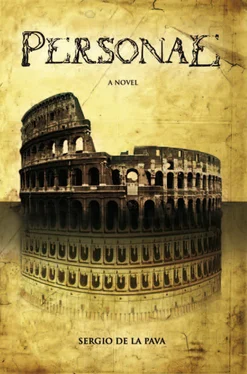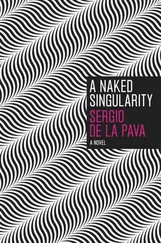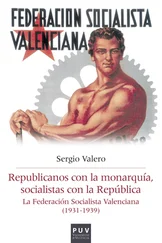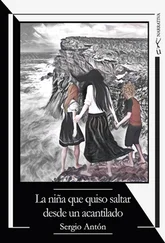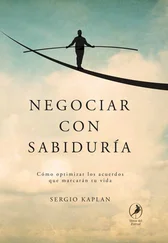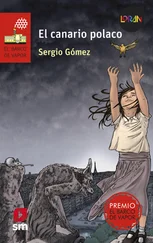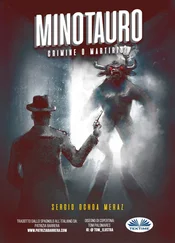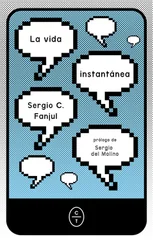Sergio De La Pava - Personae
Здесь есть возможность читать онлайн «Sergio De La Pava - Personae» весь текст электронной книги совершенно бесплатно (целиком полную версию без сокращений). В некоторых случаях можно слушать аудио, скачать через торрент в формате fb2 и присутствует краткое содержание. Год выпуска: 2011, ISBN: 2011, Издательство: Xlibris, Жанр: Современная проза, на английском языке. Описание произведения, (предисловие) а так же отзывы посетителей доступны на портале библиотеки ЛибКат.
- Название:Personae
- Автор:
- Издательство:Xlibris
- Жанр:
- Год:2011
- ISBN:9781456876968
- Рейтинг книги:3 / 5. Голосов: 1
-
Избранное:Добавить в избранное
- Отзывы:
-
Ваша оценка:
- 60
- 1
- 2
- 3
- 4
- 5
Personae: краткое содержание, описание и аннотация
Предлагаем к чтению аннотацию, описание, краткое содержание или предисловие (зависит от того, что написал сам автор книги «Personae»). Если вы не нашли необходимую информацию о книге — напишите в комментариях, мы постараемся отыскать её.
— from Personae
Personae — читать онлайн бесплатно полную книгу (весь текст) целиком
Ниже представлен текст книги, разбитый по страницам. Система сохранения места последней прочитанной страницы, позволяет с удобством читать онлайн бесплатно книгу «Personae», без необходимости каждый раз заново искать на чём Вы остановились. Поставьте закладку, и сможете в любой момент перейти на страницу, на которой закончили чтение.
Интервал:
Закладка:
All this represents work. Writer needs to be officially called in but I am reluctant to do so without concrete answers and I’m getting tired and it’s getting dark and, truth is, the epistemological scenery of that space, the various distances and positions etc., will not change significantly but what will change is the person charged with interpreting that scenery assuming she reads everything before her. I start with the notebook.
Now it is hours later, maybe the next day, and I have read everything before putting it back in the box exactly as I found it then retying said box and writing something of my own.
I’m tired.
I have done what I can.
I am only one person.
Any person will be imperfect.
Blood everywhere.
The sofa is warm and soft.
It’s a big world, cold and hard, and at some point someone will lie lifeless on every inch of it.
I am only one person and I am tired.
I close my eyes.
II. 1st of 3 Excerpts of Dr. Helen Tame’s Introduction to Her Article: BACH, GOULD, AND ACONSPIRATORIAL SILENCE [3] fn Originally published in The American Journal of Musical Theory (Fall 2000, Vol. 93, № 3) with an explanatory editor’s note referencing the author’s “singular history” including the acclaimed concert career and its unexplained abrupt cessation, all in seemingly defensive attempt to justify the odd effect the article would likely have on the journal’s usual readers.
In the beginning Man had fur. And his stomach hurt. It hurt and in a way mostly foreign to now. And there was sound and noise and even Music but when your stomach hurts, if it hurts enough, then sound is just sound and it doesn’t arrange into beauty or meaning. What you want then is for the pain to stop. For it to not follow you wherever you go and for it to not reduce everything to need and fear.
Turns out opposable digits help do this. They eventually hold tools and it is tools that will ultimately tame the world.
In this world birdsong now registers, the accidental melody of wind through gaps in wood is for the first time truly heard and it is pleasing and pleasure that consists of more than mere pain-avoidance is then seen as a good to be actively sought and the discovery that man need not wait for happy accidents but can himself replace the bird and the wind of course not only results in a great increase in that kind of pleasure but also by necessity gives prominence to those who best produce and arrange the pleasurable sounds so that significant human energy is now devoted to improving the production of these sounds initially focused on the necessary tools but later includes the realization, a big one, that the sounds have essentially hidden relationships to each other and thus to their listeners, relationships that can be broken down into kind of loose rules that while loose cannot be overstated when it comes to importance because it turns out that knowing these relationships/rules even if only intuitively and even if only to disregard them is like possessing a key (sorry) that opens precisely the doors you want opened and all this makes Music the kind of thing that can be studied and preserved, which activities give more of that prominence I mentioned to those who have skill or ability or talent or however you choose to denote the ineffable quality that allows some to order the sounds of our world into magic and it turns out, perhaps surprisingly, that a sole magician is preferable, in terms of not only effectiveness but certainly mystique and similar concerns, to collaboration, so that things like collective chants without an identifiable sole author would have to defer to the individual striving to order our chaos by sweetening our air.
And in Eisenach, Germany, in an ordinary house, on March 31, 1685, to a family steeped in Music, Johann Sebastian Bach was born.
III. In Which Painstakingly Restored Aphorisms Are Aired After Dormant Decades
A word here about what was in the box and how I’ve chosen to present it. First, the contents of said box are highly relevant to the instant investigation and as such I have decided to not merely catalogue and voucher said items but rather to present them here in their entirety. The works are here presented in chronological order, meaning in the order they were written with oldest first and most recent last. Of the chronology established and that the items represent the willful sum of Writer’s effort is beyond meaningful doubt but a brief word on the methodology used in dating the works seems warranted.
So what most directly follows is taken from the significantly aged marble notebook recovered. The manufacture date of the notebook is helpfully listed as 1970 and this date has been generally confirmed by various analyses. More significantly almost all the writing contained therein is in pencil. Contrary to generally accepted belief (yes, again) it is absolutely possible to date lead pencil markings as will be conclusively demonstrated in a forthcoming monograph that was initially underwritten by the Smithsonian Institute then only generously completed out of a sense of professional obligation in the absence of explicitly promised funds. This dating confirms that the contents of the notebook predate the three other works recovered from the box and does this by quite a bit.
Thus the notebook can be seen as a kind of warming up to the subsequent works that form the greater part of this report. The short story, play, and either unfinished novel or novella that follow in many ways result from the notebook. That the gestation depicted therein appears to have taken decades while certainly highly suggestive does not alter the fundamental relationship between notebook and offspring.
Lastly, the sad fact that only a portion of what was placed in the notebook has been recovered. Various forms of damage, over time, befell the notebook. It was never the highest quality paper to begin with and pencil starts fading the moment it hits such paper. In many cases what is displayed here is the result of various techniques designed to uncover the lost. So, for example, the many instances where what was once clear and distinct devolved into invisibility but not quite because the impressions remained: tiny canals dug into the sheets and still readable once magnified and interpreted. Predictably the result often feels fragmentary or inchoate, perhaps heightening the effect that what we have here are halting steps towards future cohesion. All by way of maybe apologizing for the imminent lack of symmetry, narrative propulsion, cheap suspense, or any of the other décor generally sought by eyeballs like yours:
… write because of an aesthetic impulse to order the world into greater attractiveness, which ordering… English is richer than Spanish, just is, and I want primarily to be rich. Art seems at least a subspecies of Love because in Art we sense Love’s greatest response yet to Life’s inherent cruelty. I do not like to talk about what I’ve written, I do not like to talk about how or why I write, I do not like to talk about myself, what I’ve seen and done or what it’s like to be me now, I do not like to talk. Joseph Conrad was twenty-one before he even heard English. Twenty-one! Conrad! Now that you’re found, I’m lost.Now that you feel love, I don’t…. the selfsame beauty runs through it. Okay just off the top of my head because life is brief and real work beckons. Take out your copy ( Cien años de soledad ) and follow along. What follows is mine (with crucial differences sometimes italicized) and therefore what a just world would have received: Many years later, in front of the firing squad, Colonel Aureliano Buendia was to recall that remote afternoon in which his father took him to discover ice. Macondo was then a village of twenty adobe houses constructed on the edge of a river of diaphanous waters that flowed over a bed of smooth stones, white and enormous like prehistoric eggs. The specific sounds of the letters, word order, relative incidence, line length, syntax; if you can preserve these and maintain fidelity to meaning shouldn’t you? Moving on: The world was so recent that many things lacked names, and to mention them one had to point with a finger. It was necessary to is so terrible here, though maybe not as bad as in order to just before it. If this was GGM’s intent there were perfectly valid and expected Spanish equivalents. If you don’t know them your Spanish isn’t good enough, if you know them and ignore the above reasoning it’s your English that’s likely the problem. Every year, in March, a family of derelict gypsies would stake its tent near the village and with a great commotion of whistles and bells display the latest inventions. Stake, derelict, and commotion are just plain better; whistles just plain correct. First they brought the magnet. Hard to mess that up so no one did. A corpulent gypsy with an unkempt beard and sparrow hands, who introduced himself as Melquiades, made a truculent public demonstration of what he himself called the eighth wonder of the sage alchemists of Macedonia. Heavy and bold are so unjustifiable in light of the above options that I lose all faith in the endeavor. Yet somehow, like eyeballs to a gruesome car accident, I skip ahead past insufferable clunkiness and inartistry to: In March the gypsies returned. This time they brought a telescope and a lens the size of a drum, which they exhibited as the latest discovery of the Jews of Amsterdam. They sat a gypsy woman at one end of the village and installed the telescope at the entrance to the tent. Upon payment of five reales, people would look through the telescope to see the woman within arm’s reach. “Science has eliminated distance,” proclaimed Melquiades. “Soon Man will be able to see what occurs anywhere on Earth without leaving his house.” Theirs is not terrible, unlike the following’s equivalent: One scorching midday they made an amazing demonstration with the gigantic lens: they placed a mound of hay in the middle of the street then set it ablaze by means of concentrated solar rays. There is no reference to the sun in the original Spanish nor to any magnification hence none in the above translation and mound works nicely for montón , certainly better than pile, see how it works? The sun’s rays here would be like dry hay , dumb. Later: Jose Arcadio Buendia didn’t even try to console her, entirely absorbed as he was in tactical lenticular experiments that he conducted with the abnegation of a scientist and even at risk to his own life. Trying to show the potential effects of the lens on enemy troops, he so exposed himself to concentrated solar rays that he suffered ulcerous burns that were slow to heal. Fine I added lenticular and arguably modified ulcer into its adjective form but said additions are yummy and amply supported by the record that is the original. Similarly contrast this: Despite the fact that trips to the capital were then only slightly less than impossible, Jose Arcadio Buendia promised that the moment the government placed its order he would attempt one so he could appear before the military powers-that-be to make practical demonstrations of his invention and personally train them in the complicated art of solar warfare. With the gnarled mess the world got. It’s all enough to make the non-Spanish speaking world jump ship before Buendia can even announce his discovery that the world is round like an orange. In sum, can anyone prefer “an earthly condition that kept him involved in the small problems of daily life” to “a terrestrial condition that kept him entangled in the miniscule problems of quotidian life” and does preference even matter when the Spanish is una condicíon terrestre que lo mantenía enredado en los minúsculos problemas de la vida cotidiana ? Problematic English, finally then, is my diagnosis. The invisible sounds they generate, sure, but also just the way some words look on a page, black ink on white paper, so that it almost seems as if even someone deprived of their sense would recognize their beauty: LONESOME Death is insufficient to us part, deaths is required…. the literary equivalent of melody. Art, or a purposeful form of play that seeks to illuminate Life. The author’s task is not to invent or even discover but to reassert, in compelling fashion, what we’ve long known to be true. Melville dying in the gutter though he did damn near write The Gospels of his century…. requires… special… selflessness… interest in others… inhabit… nature… engagement with… high… questions… With proper Art man reminds himself of the ideal…. great only insofar as it creates palpable human beings one can feel for; otherwise it’s far more likely empty exercise designed principally to benefit the exerciser. Perfection (v.) of which marks the zenith of human activity such that… “Avenge me man.”“Avenge?”“You mean avenge your death. His death he wants you should avenge.”“What does that even mean?”“I’m dying bro, you see the blood.”“He’s dying.”“No that part I get. It’s the avenging part that stops me.”“Avenge my death.”“How?”“How he says. Kill the man who killed him, there’s no other how.”“Kill? I’m going to kill someone? From what I’ve seen society frowns upon that sort of thing.”“Society? Who brings up society at a time like this? It’s his dying wish, just accede to it.”“Easy for you to say, I don’t see you rushing to avenge. Go ahead. Take a blood oath to do so, there’s plenty with which.”“That’s silly, I don’t know this guy from a hole in the wall.”“That’s another thing. I mean I know you and all but we were never really that close. Don’t you have like a brother or something who can avenge?”“Course not, don’t you think you’d know if he had a brother? Falls on you man.”“My point exactly. If I don’t even know if he has a brother, I’m probably not the best choice for avenger. I could probably be the guy who relays the message to his eight brothers that he wanted to be avenged.”“His death avenged.”“No brothers, avenge me. My death.”“What about, like, a really tough sister?”“Will you stop? There’s no time to lose. Look at him. Swear you’ll avenge!”“Fine, I’ll avenge! But I don’t even know where to start. Who’s the recipient of my avengeance? Is that even a word?”“Who did you man?”“Also who asks for avenging? You own a deli, all of a sudden you’re a goddamn Shaolin monk or something?”“Know him?”“No.”“Better describe him then.”“He’s black.”“African-American.”“Great, I’m avenging a racist.”“Huge.”“Naturally, can’t buy a break.”“What else? Nothing else, he’s gone. You’re going to have to run with that.”“Run? I can’t even trot with that.”“You’ll have to do some investigation. Start collecting fibers.”“Fibers?”“Yeah, it all starts with fibers it seems.”“Fibers. You collect the damn fibers you roped me into this thing. Fibers.”“Here’s a fiber, a giant one. Yellow and spongy, what do you make of it?”“That’s a Twinkie.” Proper Art increases the recipient’s capacity for empathy thereby increasing the world’s store of Love. Emily Dickinson’s Letter to the World bound in a drawer away from any auction of the mind. Ask the four if the forty come back no more and only the waves reply. I am not a man who suffers fools gladly. In fact if you ever see me in the presence of a fool you will almost immediately note that I refuse to suffer him. Or if I do suffer him, do so in a manner that can never be mistaken for glad. Of course this inability and the biting comments it requires has earned me a well-deserved reputation so that I will often hear my name come up in public discourse only to hear one party say something to the effect that well you know he doesn’t suffer fools gladly to which the other will respond something like no, he doesn’t . Which reputation, of course, comes with its own responsibilities so that many is the time I have found myself in the presence of a fool and thought why don’t you go ahead and suffer this guy for a while, where’s the harm? But then I’ll remember what I’m known for doing with fools and I’ll stop. Not that it’s always easy to identify a fool either because many is the time that I’ve been going along suffering some person like it was the most natural thing in the world when I’ll suddenly realize hey this person’s a fool, and what’s worse I’ve been suffering him, gladly! … by filling it with allusive arcana for eager professors. Of course he could’ve just written King Lear. If the world is supported by a giant turtle what supports the turtle? Don’t be silly, it’s turtle all the way down. There’s no void to fill, it’s all void. Blind Milton, penniless Melville, suicided Woolf and Hemingway, incarcerated Cervantes, epileptic Dostoyevsky, walking into a river your pockets full of stones, squeezing a shotgun between the floor and your forehead, wandering in the cold to your death, tuberculosis in the twentieth century right after a masterwork, but I concede nothing…. an unhealthy fascination with technique and innovation to the detriment of the true and… 1. Narrative Poetry2. Prose Fiction3. Music Just a cruel place, but one where the transcendental often walks alongside the cruel. Character is foundational. Art is a common language and commonalities combat loneliness. ‘Tis majority ruleth all.The minor one, alone to fall. The miner won a loan, two of all.The mine or won, all own to fall.The my nor won, a low an to a fall.Them I know run, a lone two of awe.Dumb I now run, all owe into Fall.The my now are one, a loam too fall. The My now are oneThe mine are oneA loam too fallI am oneAll oneToo fallA oneAloneONE Because I no longer wish to be of you, I’ve tried it your way and it’s empty, I don’t want to monitor numbers or keep time like a metronome; I want the small part of life that flows through me to transmute then emerge as metaphor, clean and hard and inclusive but sharp enough to cleave the world that we the pained may digest it whole. To justify the ways of man to God.
Читать дальшеИнтервал:
Закладка:
Похожие книги на «Personae»
Представляем Вашему вниманию похожие книги на «Personae» списком для выбора. Мы отобрали схожую по названию и смыслу литературу в надежде предоставить читателям больше вариантов отыскать новые, интересные, ещё непрочитанные произведения.
Обсуждение, отзывы о книге «Personae» и просто собственные мнения читателей. Оставьте ваши комментарии, напишите, что Вы думаете о произведении, его смысле или главных героях. Укажите что конкретно понравилось, а что нет, и почему Вы так считаете.
